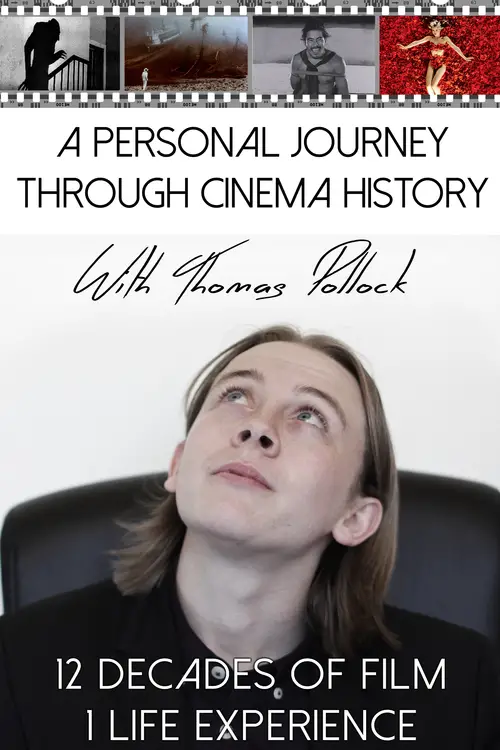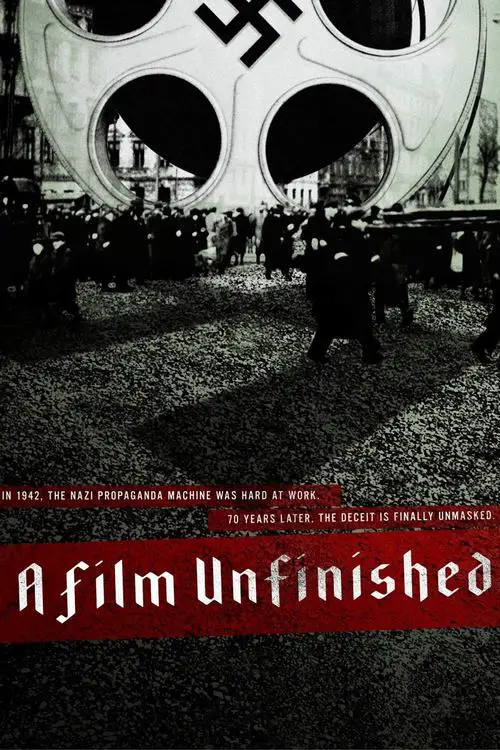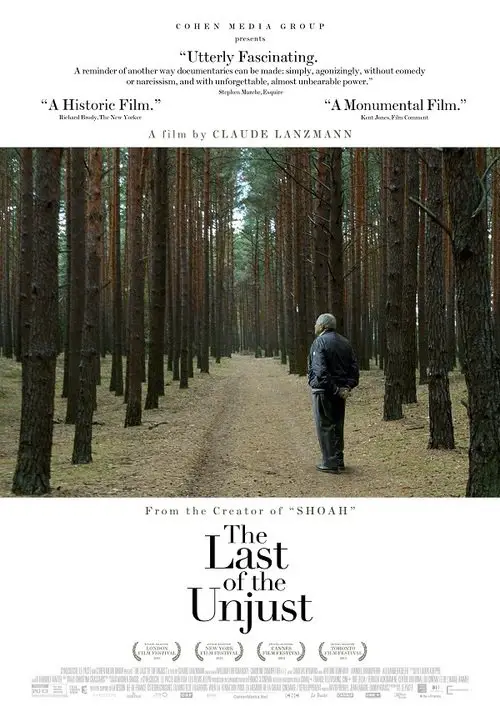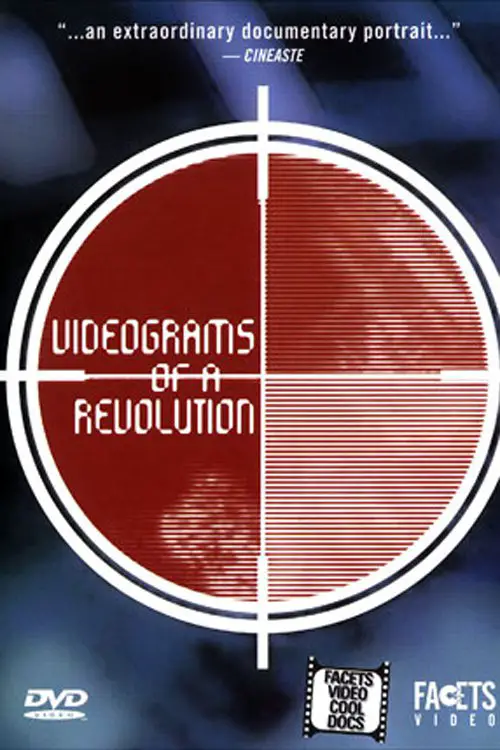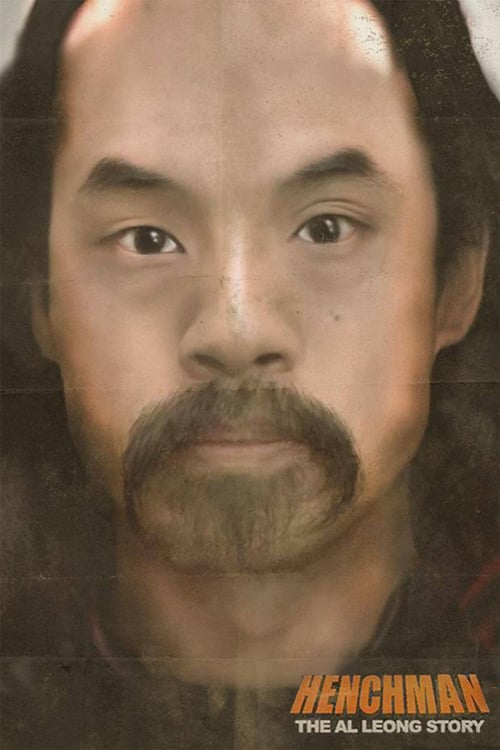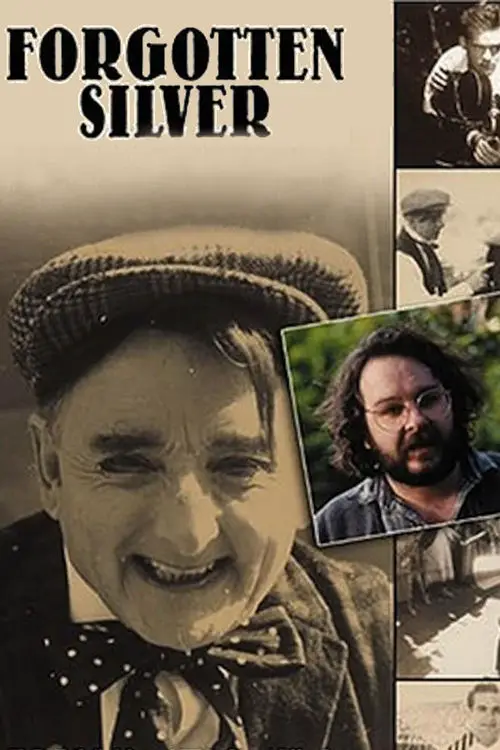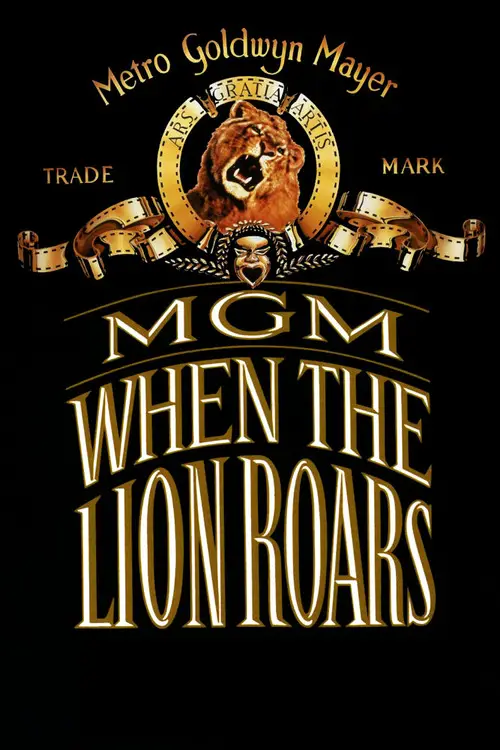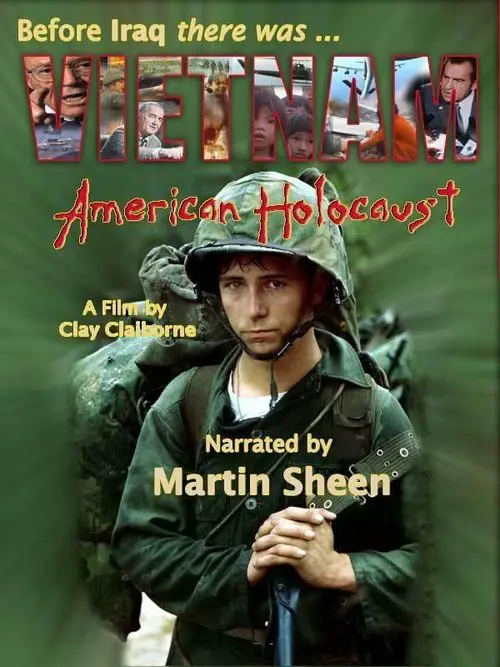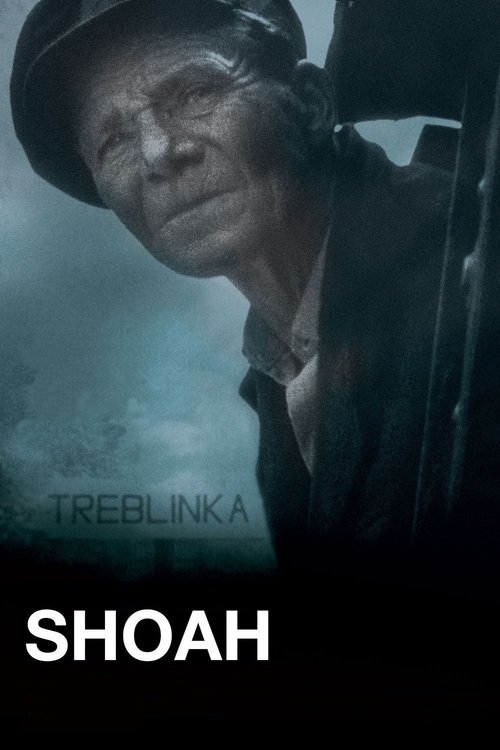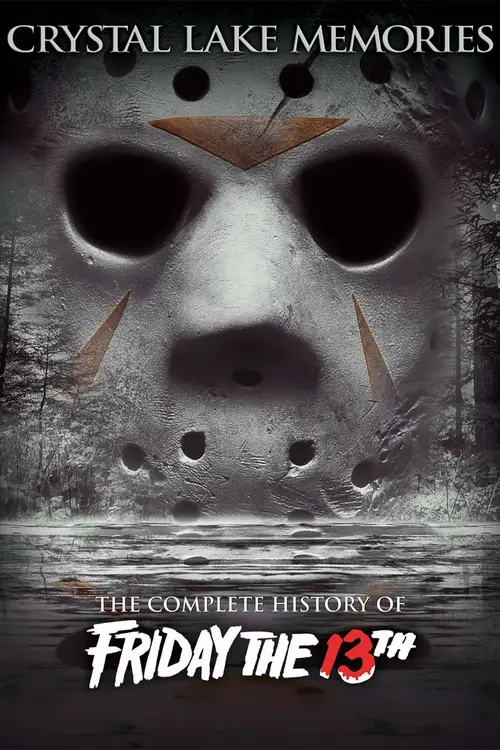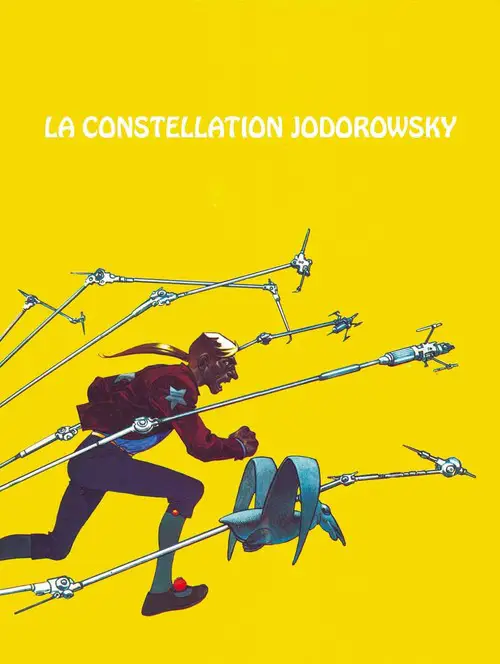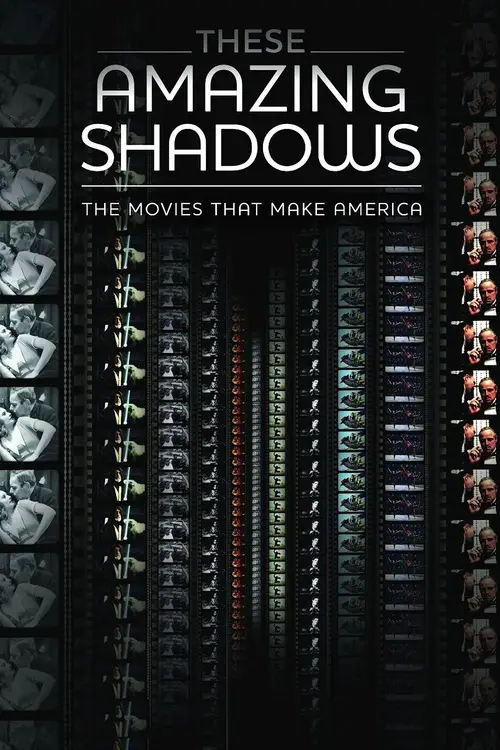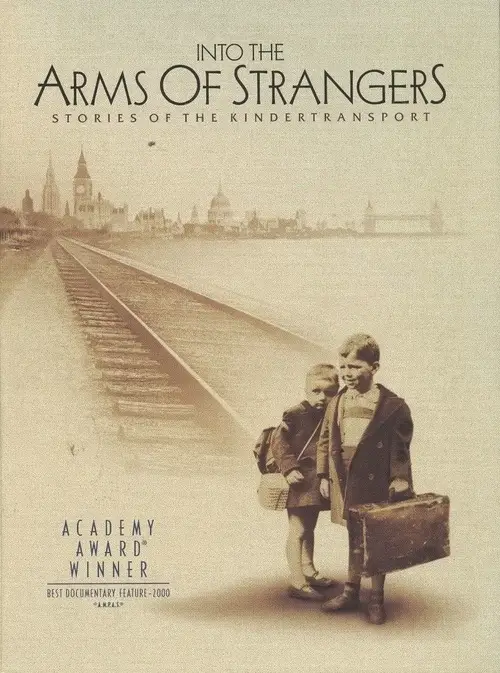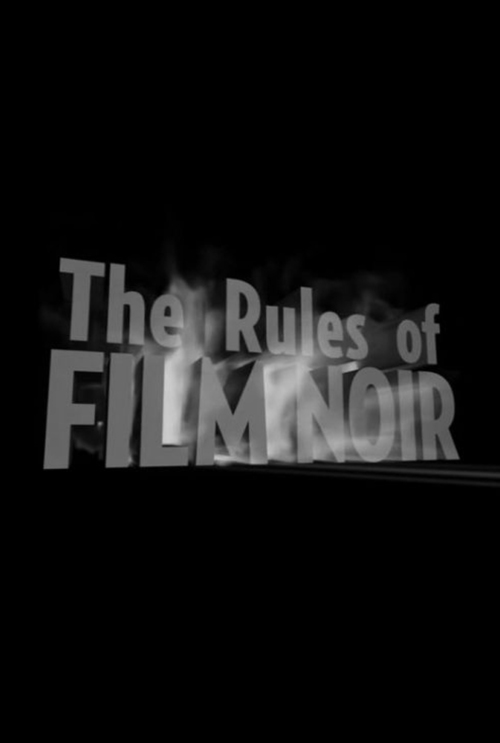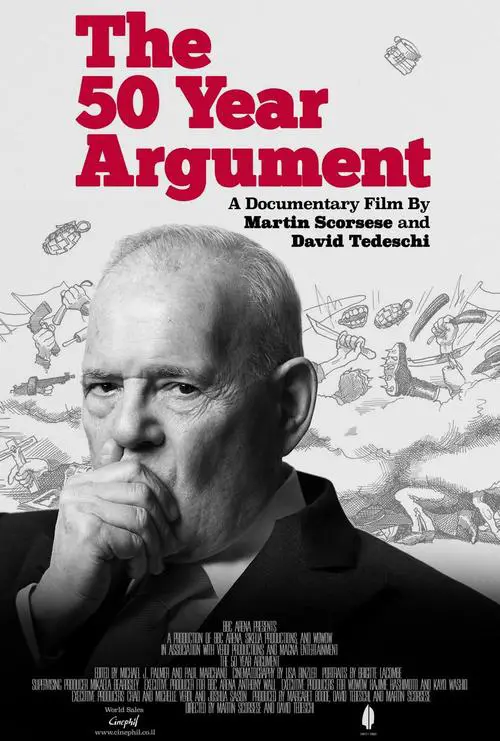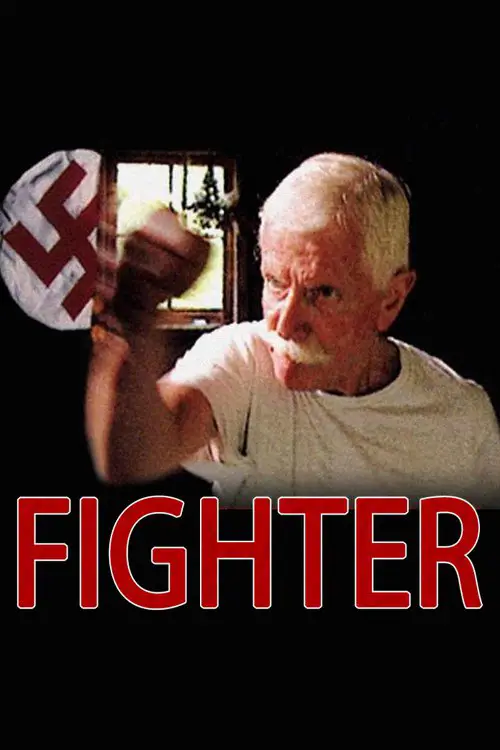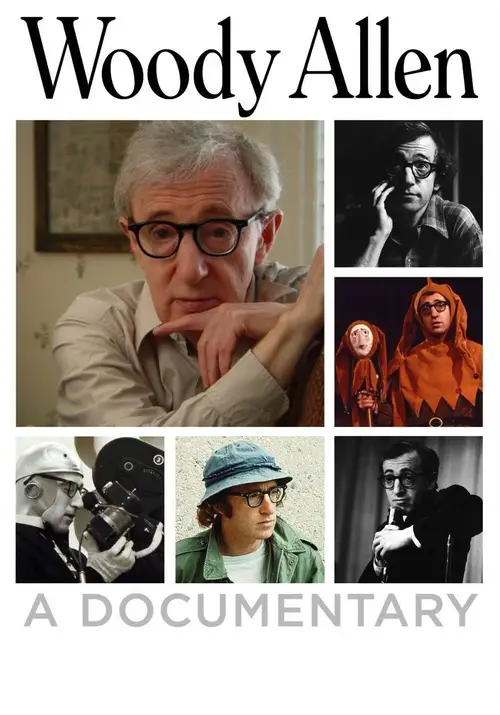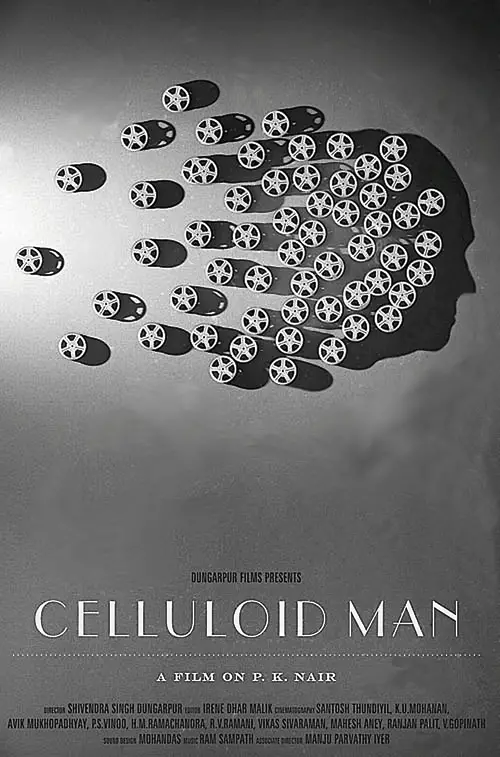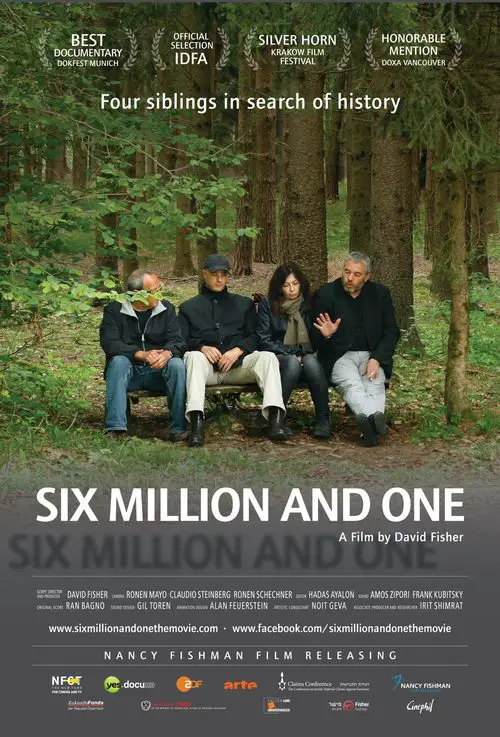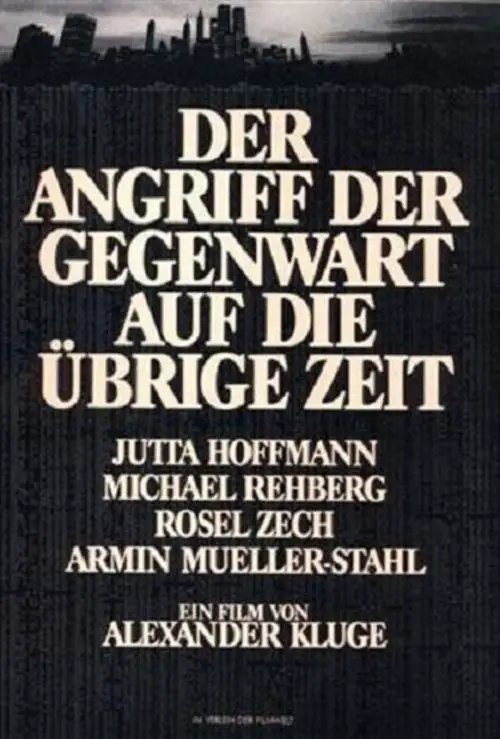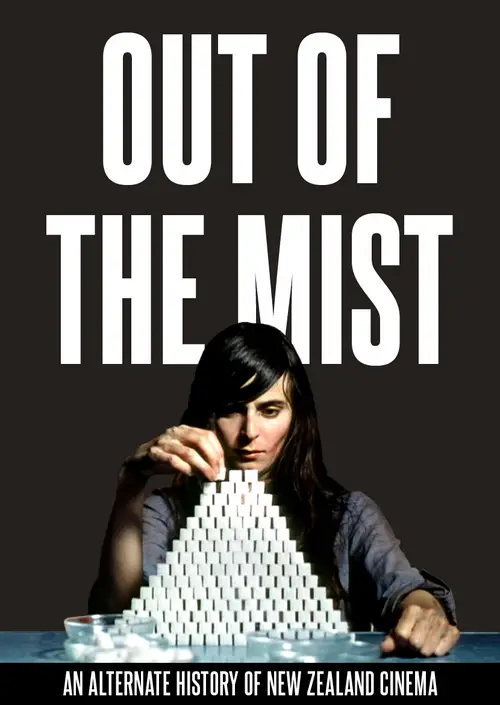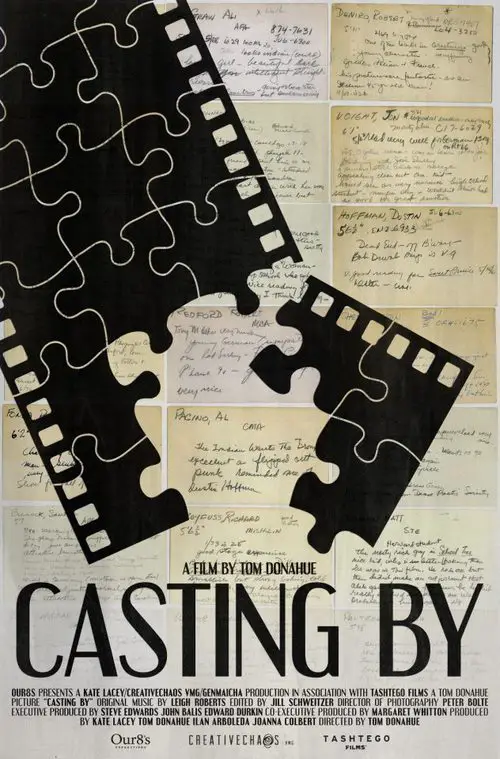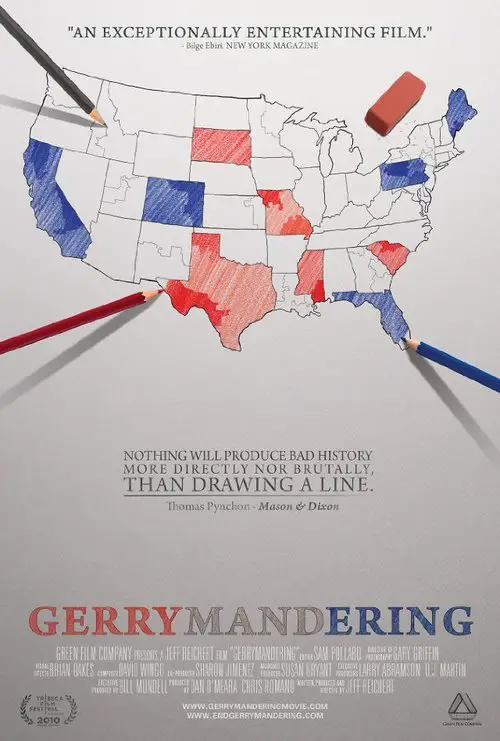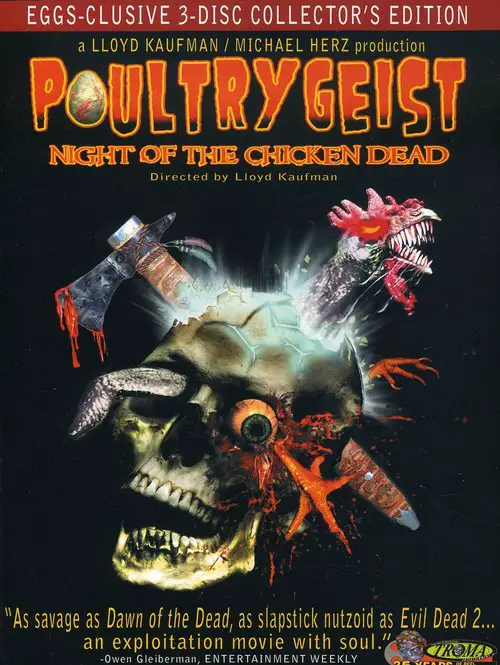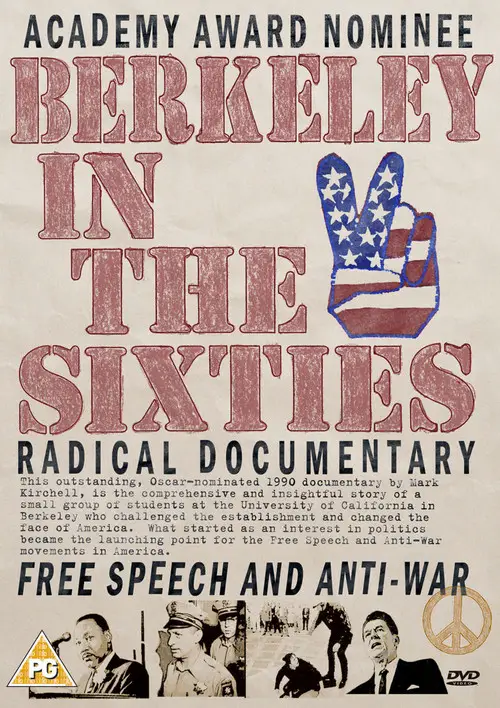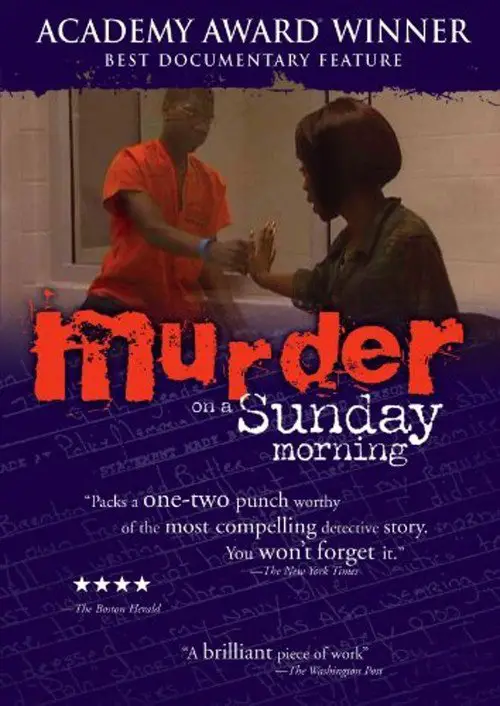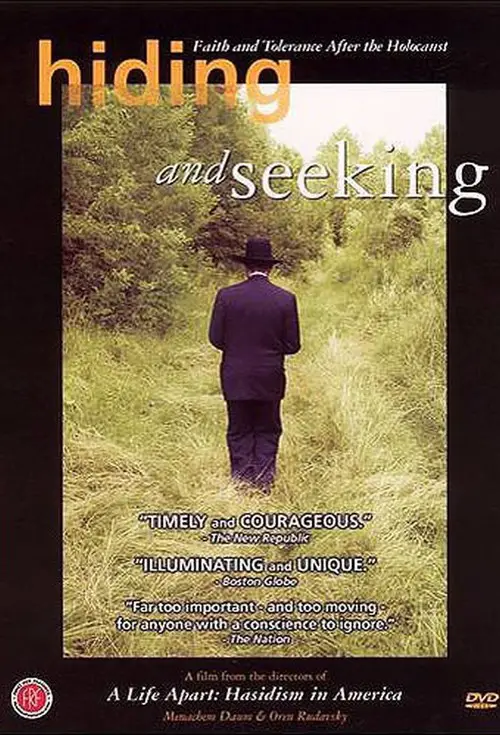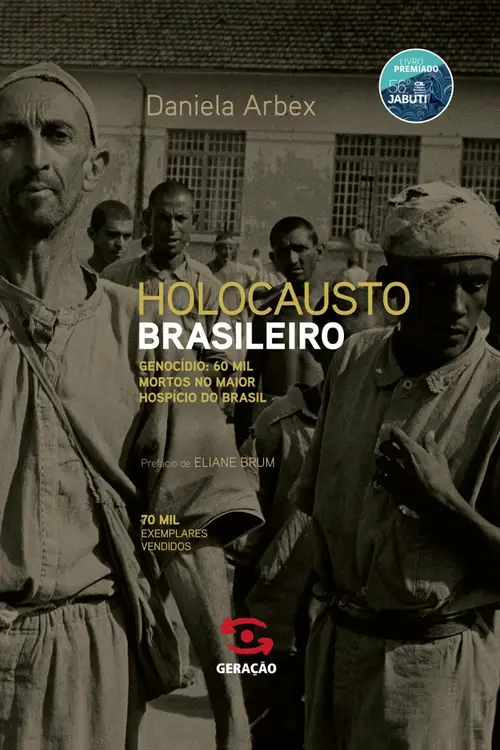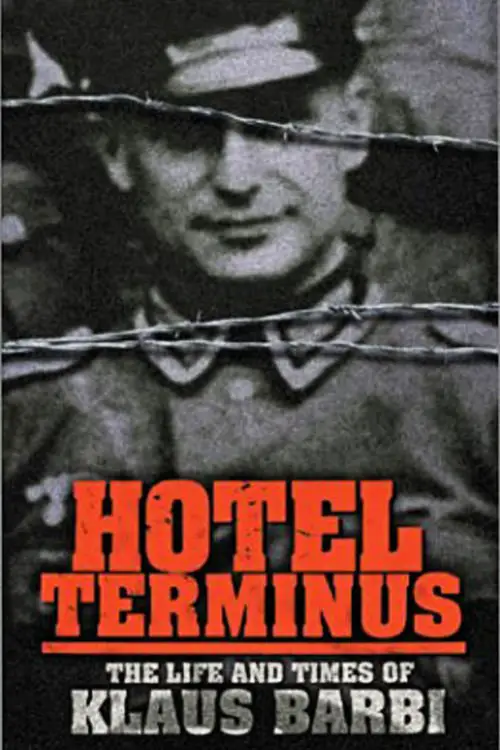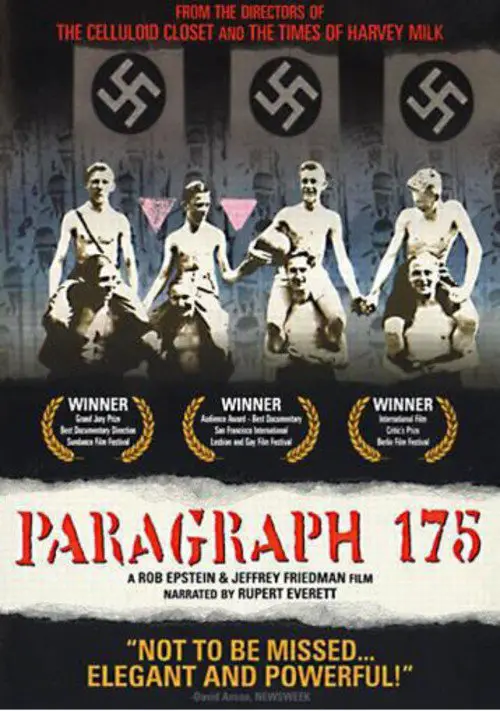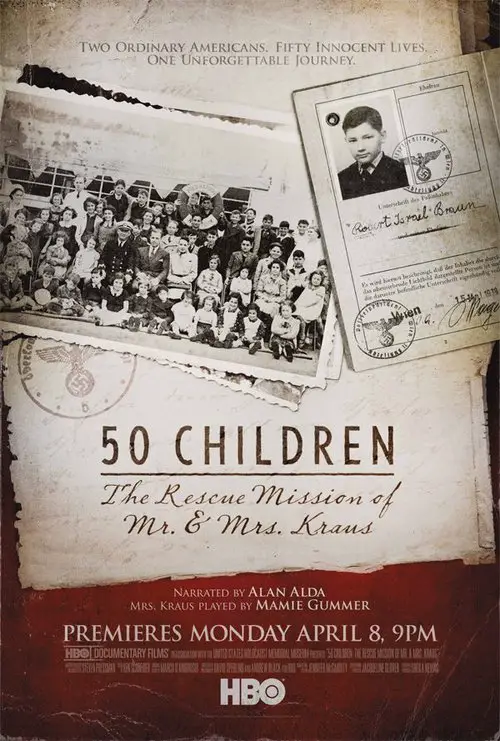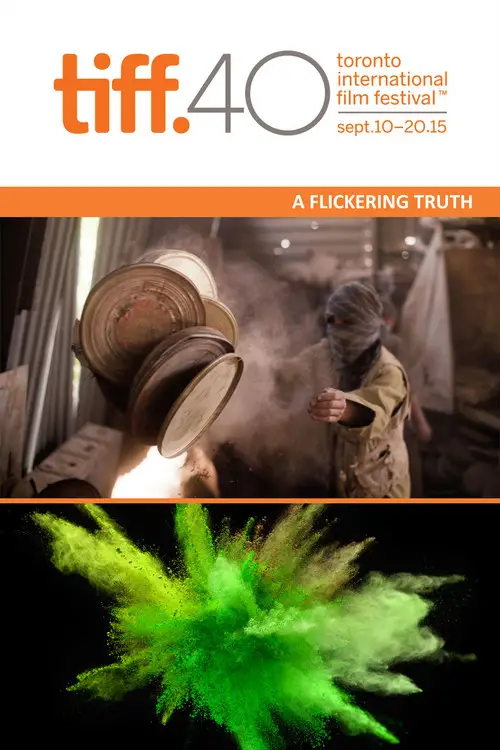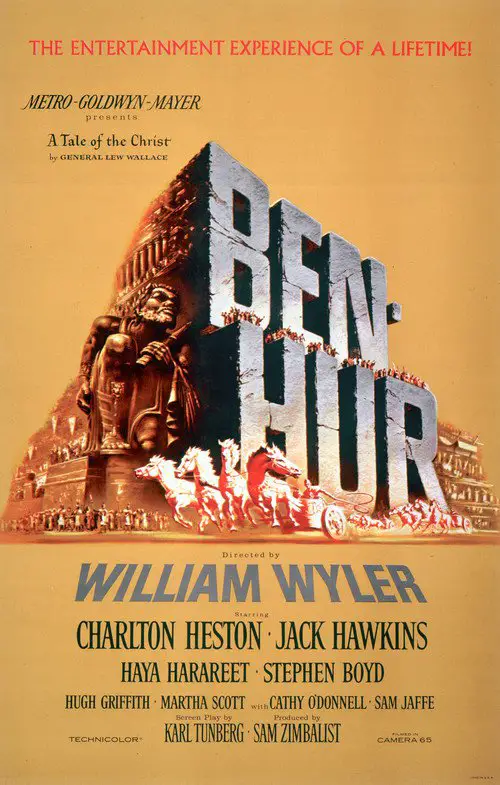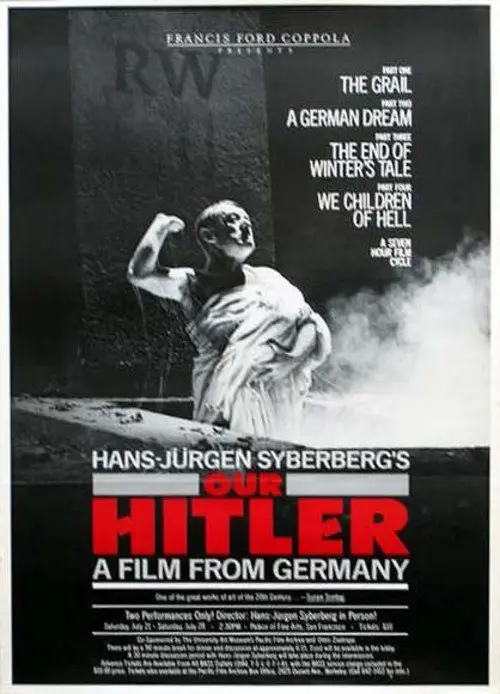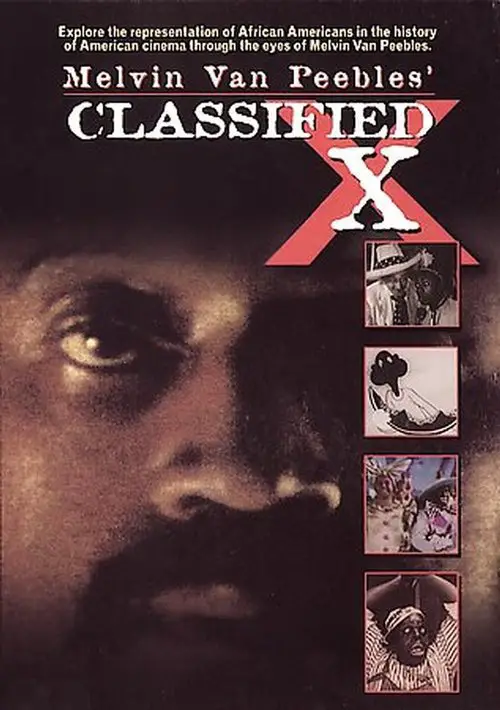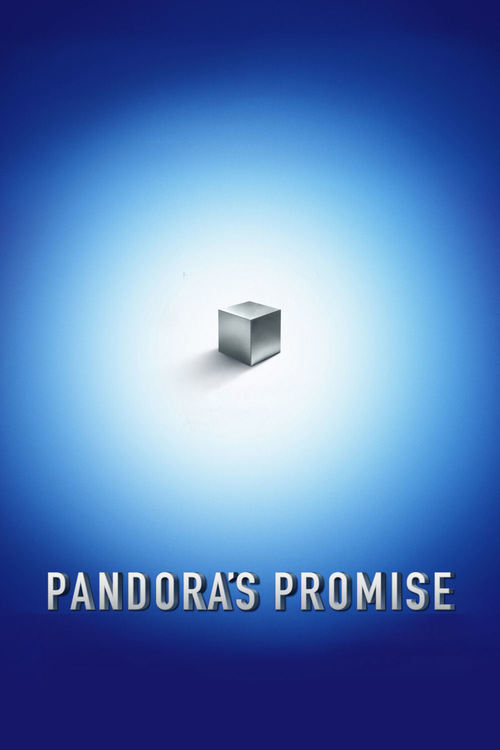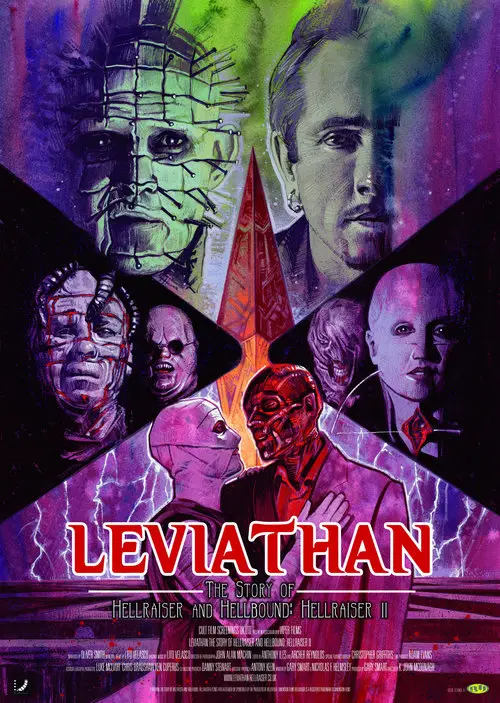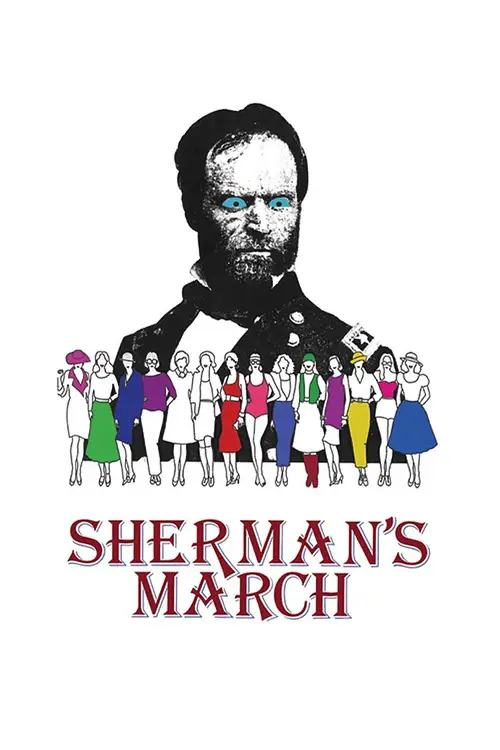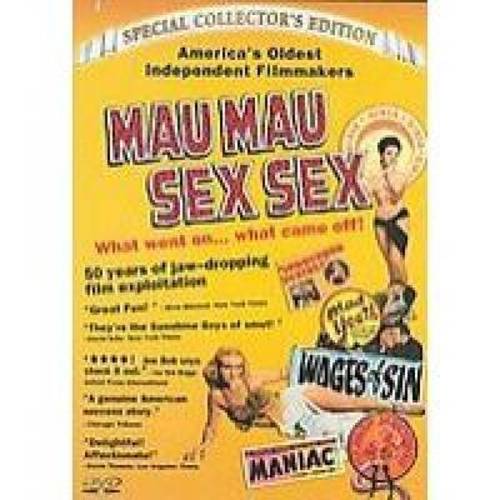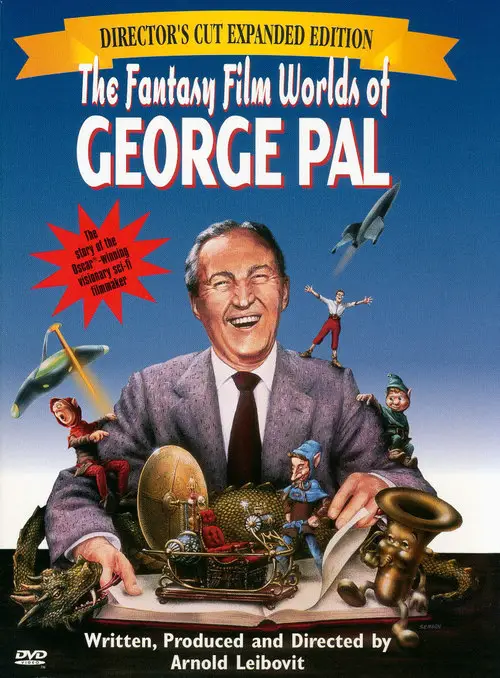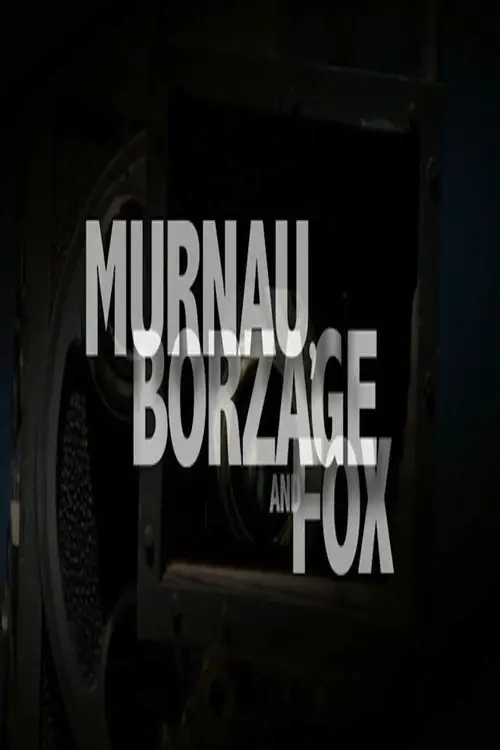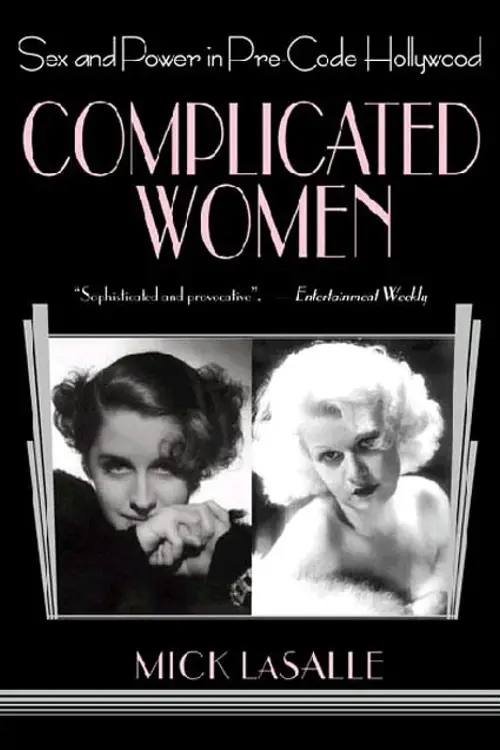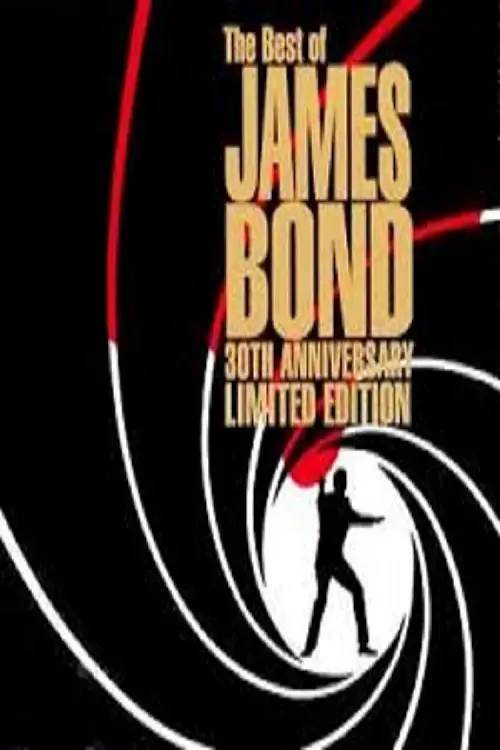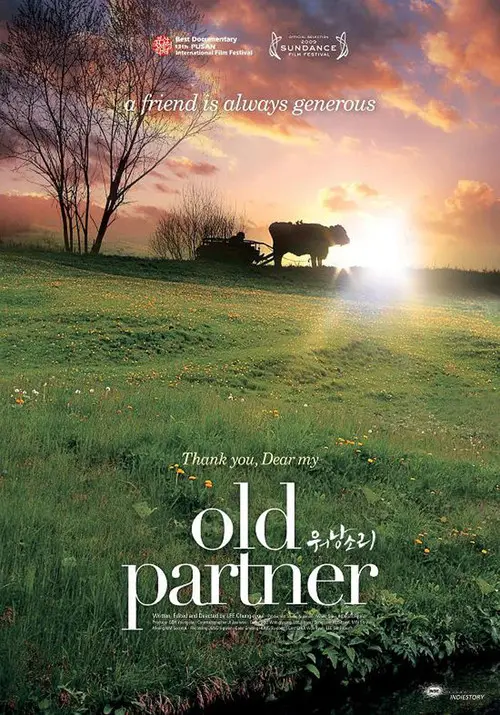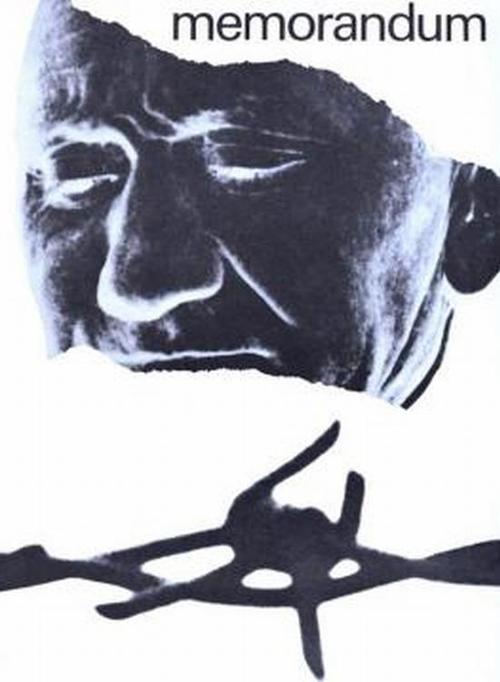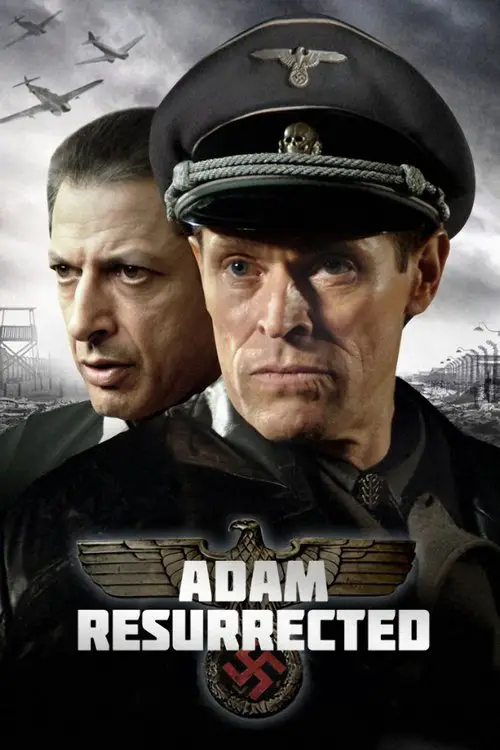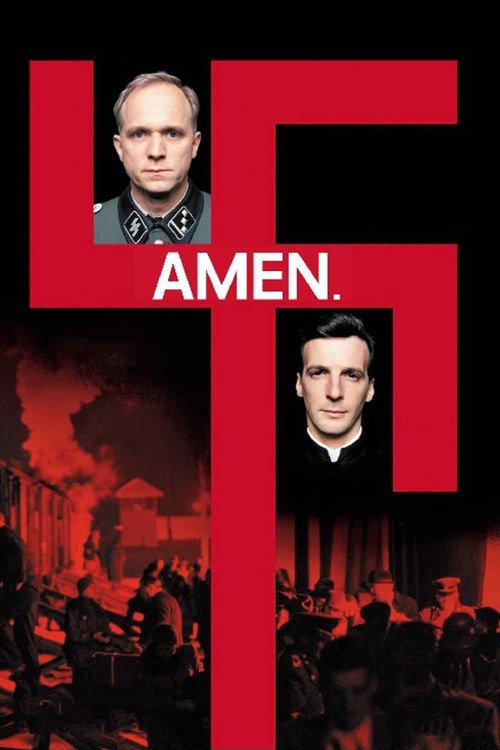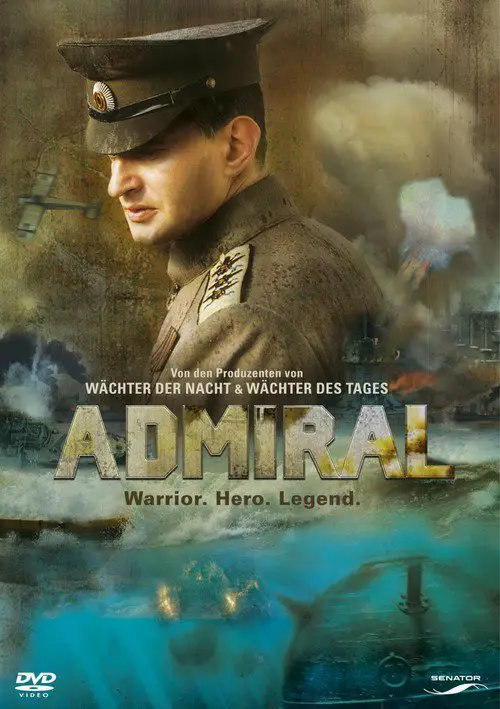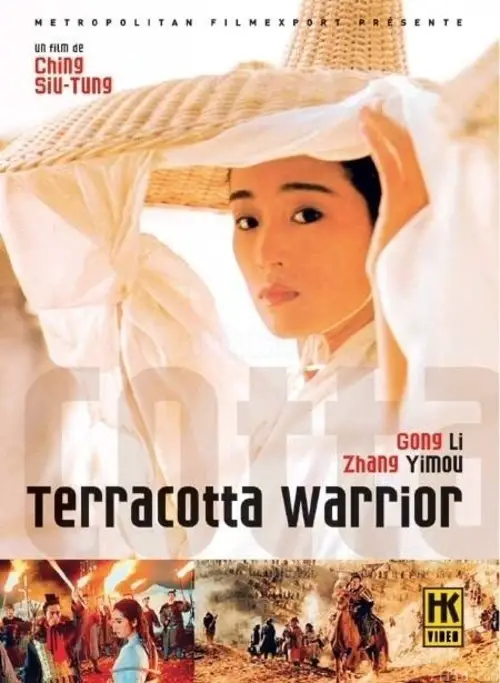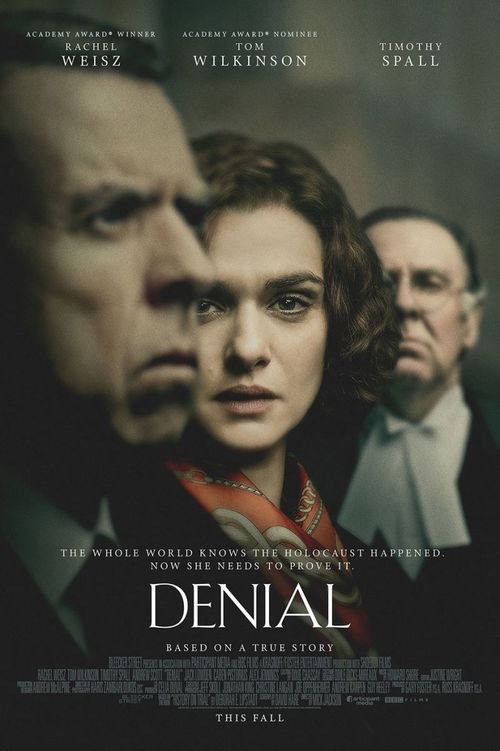Imaginary Witness: Hollywood and the Holocaust (2004)
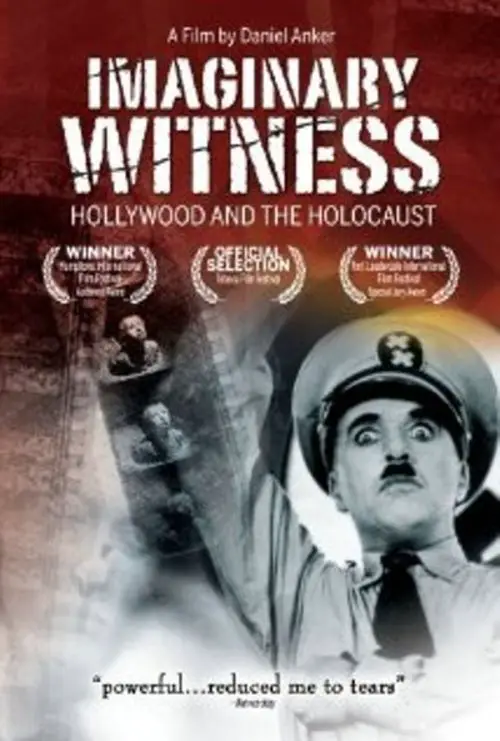
Similar movies
Yael Hersonski's powerful documentary achieves a remarkable feat through its penetrating look at another film-the now-infamous Nazi-produced film about the Warsaw Ghetto. Discovered after the war, the unfinished work, with no soundtrack, quickly became a resource for historians seeking an authentic record, despite its elaborate propagandistic construction. The later discovery of a long-missing reel complicated earlier readings, showing the manipulations of camera crews in these "everyday" scenes. Well-heeled Jews attending elegant dinners and theatricals (while callously stepping over the dead bodies of compatriots) now appeared as unwilling, but complicit, actors, alternately fearful and in denial of their looming fate.
A place: Theresienstadt. A unique place of propaganda which Adolf Eichmann called the "model ghetto", designed to mislead the world and Jewish people regarding its real nature, to be the last step before the gas chamber. A man: Benjamin Murmelstein, last president of the Theresienstadt Jewish Council, a fallen hero condemned to exile, who was forced to negotiate day after day from 1938 until the end of the war with Eichmann, to whose trial Murmelstein wasn't even called to testify. Even though he was without a doubt the one who knew the Nazi executioner best. More than twenty-five years after Shoah, Claude Lanzmann's new film reveals a little-known yet fundamental aspect of the Holocaust, and sheds light on the origins of the "Final Solution" like never before.
Videograms of a Revolution is a 1992 documentary film compiled by Harun Farocki and Andrei UjicÄ from over 125 hours of amateur footage, news footage, and excerpts from the Bucharest TV studio overtaken by demonstrators as part of the December 1989 Romanian Revolution. In 2004 the Austrian Film Archive selected the documentary as part of its Die Utopie Film program for The Best 100 in Film History list.
This dryly funny mockumentary about the lost work of a pioneering New Zealand film genius is probably one of the best examples of the faux-documentary genre. In fact, it was so successful that when it originally aired on New Zealand television, hundreds of viewers bought the premise hook, line, and sinker. If you didn't know any better yourself, it's entirely possible you might be duped into believing the extremely tall tale of one Colin MacKenzie, an ambitious filmmaker who made the world's first talking movie (years before The Jazz Singer), invented color film, and created a huge biblical epic that would put Cecil B. DeMille and D.W. Griffith to shame. Filmmaker Peter Jackson (Heavenly Creatures) shrewdly inserts himself into the film via his documentation of the "discovery" of McKenzie's lost epic, which for years was preserved in a garden shed.
VIETNAM: AMERICAN HOLOCAUST exposes one of the worst cases of sustained mass slaughter in history, carefully planned and executed by presidents of both parties. Our dedicated generals and foot soldiers, knowingly or unknowingly, killed nearly 5 million people, on an almost unimaginable scale, mostly using incendiary bombs. Vietnam has never left our national consciousness, and now, in this time, it has more relevance than ever. Claiborne documents the Whitehouse fabrication of the Gulf of Tonkin Incident, and further, raises the question of whether JFK was assassinated to promote the Vietnam War. Martin Sheen, who played the leading role in Apocalypse Now almost 30 years ago, has generously lent his powerful voice to this actual history of the War in Vietnam.
Since the invention of cinema, the standard format for recording moving images has been film. Over the past two decades, a new form of digital filmmaking has emerged, creating a groundbreaking evolution in the medium. Keanu Reeves explores the development of cinema and the impact of digital filmmaking via in-depth interviews with Hollywood masters, such as James Cameron, David Fincher, David Lynch, Christopher Nolan, Martin Scorsese, George Lucas, Steven Soderbergh, and many more.
Claude Lanzmann directed this 9 1/2 hour documentary of the Holocaust without using a single frame of archive footage. He interviews survivors, witnesses, and ex-Nazis (whom he had to film secretly since they only agreed to be interviewed by audio). His style of interviewing by asking for the most minute details is effective at adding up these details to give a horrifying portrait of the events of Nazi genocide. He also shows, or rather lets some of his subjects themselves show, that the anti-Semitism that caused 6 million Jews to die in the Holocaust is still alive in well in many people that still live in Germany, Poland, and elsewhere.
This documentary depicts the filmmaker Alejandro Jodorowsky talking about his life, his loves, his career as a filmmaker, graphic novelist, and workshop leader, and his eccentricities including tarot reader and theatrical director during The Panic Movement. Directed by Louis Mouchet, La Constellation Jodorowsky includes a lengthy on-camera interview with Jodorowsky in Spanish with subtitles. Marcel Marceau, Fernando Arrabal, Peter Gabriel, Jean "Moebius" Giraud, and Jean Pierre Vignau make appearances discussing their various projects with the director. In addition to the interview and film clips, Mouchet features some bizarre footage from Jodorowskyâs absurdist plays in which topless women splattered with paint writhe around the stage in a theatrical production meant to represent The Panic Movement, i.e., an artistic expression in which reason cannot fully express the human experience.
Matthew Sweet explores his rules of 1940s and 50s American film noir thrillers: *Choose a dame with no past and a hero with no future *Use no fiction but pulp fiction *See America through a stranger's eyes *Make it any colour as long as it's black *It ain't what you say, it's the way that you say it.
Directed by acclaimed filmmaker Martin Scorsese and his longtime documentary collaborator David Tedeschi, A 50 Year Argument rides the waves of literary, political, and cultural history as charted by the The New York Review of Books, Americaâs leading journal of ideas for over 50 years. Provocative, idiosyncratic and incendiary, the film weaves rarely seen archival material, contributor interviews, excerpts from writings by such icons as James Baldwin, Gore Vidal, and Joan Didion along with original verité footage filmed in the Reviewâs West Village offices. Confrontation and original argument are in the Review's DNA - the magazine seems as vital now as when it was run by its indefatigable founding editors, Robert Silvers and the late Barbara Epstein. Co-produced with the BBC's award-winning Arena and shaped by Scorcese's vivid filmmaking style, The Fifty Year Argument captures the power of ideas in influencing history.
Gerrymandering is a 2010 documentary feature film written and directed by Jeff Reichert. The film explores the history and the ethical, moral and racial problems raised by redistricting, i.e., the drawing of boundaries of electoral districts in the United States.Gerrymandering covers the history of the redistricting practice, how it is used and abused, how it benefits the two major major political parties, Democrats and Republicans. The documentary draws on the perspectives from different individuals, reporters, pundits and politicians.
An Orthodox Jewish father tries to alert his adult sons to the dangers of creating impenetrable barriers between themselves and those outside their faith. He takes them on an emotional journey to Poland to track down the family who risked their lives to hide their grandfather for more than two years during World War II. Like many children of survivors, the sons feel that Poland is a country that is incurably anti-Semitic, but it is precisely here that they meet people who personify the highest levels of compassion
For decades, thousands of patients were hospitalized forcibly, without diagnosis of mental illness, in an enormous hospice in the city of Barbacena, Minas Gerais, southeast of Brazil. There they were tortured, raped and killed without anyone caring about their fate. Famous journalists, in the 1960s and 70s, made reports denouncing the ill-treatment. None of them - as Daniela Arbex does now - could tell the whole story. Sixty thousand died. Some managed to survive. And they now tell a little about the terrifying history of the Cologne Hospital.
Winner of a Best Documentary Academy Award, Marcel Ophuls' riveting film details the heinous legacy of the Gestapo head dubbed "The Butcher of Lyon." Responsible for over 4,000 deaths in occupied France during World War II, Barbie would escape--with U.S. help--to South America in 1951, where he lived until a global manhunt led to his 1983 arrest and subsequent trial.
Hosted by Ben Stein, this controversial documentary examines how pro-intelligent design scholars and scientists are often chastised, fired or denied tenured positions by those who believe in Darwin's theory of evolution. Nathan Frankowski's film explores how scientists who believe in God are oppressed and how the acceptance of Darwinism might have played a role in the formation of the Nazi regime.
Documentary film that examines the rise and fall of the Third Reich, incorporating puppetry, rear-screen projection, and a Wagnerian score into a singular epic vision. The director, who grew up under Nazi tyranny, ruminates on good and evil and the rest of humanity's complicity in the horrors of the holocaust.
The atomic bomb, the specter of a global nuclear holocaust, and disasters like Fukushima have made nuclear energy synonymous with the darkest nightmares of the modern world. But what if everyone has nuclear power wrong? What if people knew that there are reactors that are self-sustaining and fully controllable and ones that require no waste disposal? What if nuclear power is the only energy source that has the ability to stop climate change?
Among the legends of Hollywood, George Pal takes his place as a true visionary, an innovator and a showman who profoundly shaped the art of motion pictures. A peer of Walt Disney, Pal pioneered stop motion animation and went on to virtually invent the modern science fiction and fantasy film genres. Pal's extraordinary genius molded a dazzling array of films, which earned an incredible total of eight Academy Awards and left a cinematic legacy that served as formative inspiration for the movies of George Lucas, Steven Spielberg and Gene Roddenberry.
The Birth of A Nation is a silent film from 1915 and the highest grossing silent film in film history. The film tells a romance story during the American civil war. Director Griffith created many new camera effects and innovations in filming the movie. Way ahead of it's time in many regards. That said this movie will offend most people today. The very negative portrayal of newly freed slaves (mostly white actors in black face) went on to create and propagate negative images of blacks of the early 20th century in the Unites States. This film was used as a recruiting propaganda by the KKK until the 1940's.
Before the war, in Berlin, Adam was an entertainer- cabaret impresario, magician, musician-loved by all until he finds himself in a concentration camp, confronted by Commandant Klein. Adam survives the camp by becoming the Klein's "dog", entertaining him while his wife and daughter are sent off to die. "Adam Resurrected" is the story of a man who once was a dog who meets a dog who once was a boy.
The film "Amen." examines the links between the Vatican and Nazi Germany. The central character is Kurt Gerstein, a member of the Institute for Hygiene of the Waffen-SS who is horrified by what he sees in the death camps. Moreover, he is shocked to learn that the process he used to purify water for his troops, by using zyklon, served as a basis to kill people in gas chambers.
This is a story of a great love facing the greatest drama of the history of Russia. Admiral Kolchak is a true war hero and beloved husband and father. One day he meets Anna, the love of his life and the wife of his best friend. The revolution in his heart faces the revolution in his own country His destiny is to become the Supreme Rules of Russia.
China 3000 years ago. It's the time of the Qin dynasty. The emperor seeks immortality by busily letting his alchemists search for a formula and building the famous terracotta army from the bodies of outlaws and the condemned. This is the time Mong Tiang Fong and court lady Twon fall deeply in love. Such a thing is not tolerated at the court and when their relationship is discovered both are sentenced to death. In the meantime the alchemists have discovered the formula of immortality, but decide to destroy their work. However Twon gets possession of one immortality pill which she manages to give to Tiang Fong before he's made a terracotta warrior too. China 1930. While on location a film crew discovers parts of the grave of emperor Qin guarded by the terracotta warriors. Tiang Fong, being immortal, awakes...
Open City is a landmark in film history. Filmed in secrecy during the Nazi occupation of Italy, the film shows a realistic portrayal of the underground resistance in Italy in 1945. The film has strong impacting imagery with itâs mix of fiction and reality that strengthened Italian Neo-realism and the film industry.
In 1944 Poland, a Jewish shop keeper named Jakob is summoned to ghetto headquarters after being caught out after curfew. While waiting for the German Kommondant, Jakob overhears a German radio broadcast about Russian troop movements. Returned to the ghetto, the shopkeeper shares his information with a friend and then rumors fly that there is a secret radio within the ghetto.
© Valossa 2015–2025
| Privacy Policy
